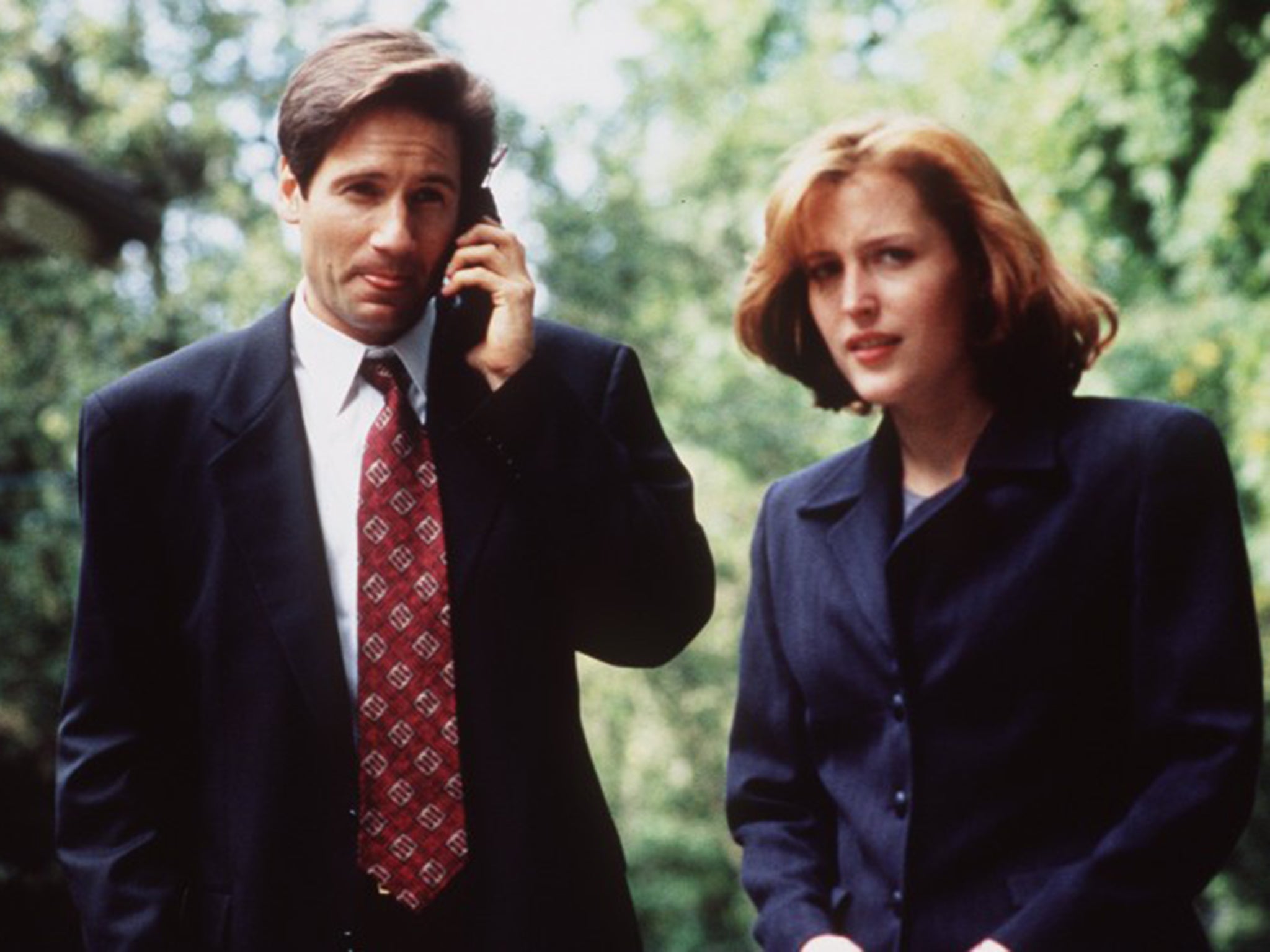The new X-Files: Can Mulder and Scully pull it off in a more cynical, post-Snowden era?
Plans for a new series of the 'The X-Files' have excited fans of the original show, Simon Usborne among them

Your support helps us to tell the story
From reproductive rights to climate change to Big Tech, The Independent is on the ground when the story is developing. Whether it's investigating the financials of Elon Musk's pro-Trump PAC or producing our latest documentary, 'The A Word', which shines a light on the American women fighting for reproductive rights, we know how important it is to parse out the facts from the messaging.
At such a critical moment in US history, we need reporters on the ground. Your donation allows us to keep sending journalists to speak to both sides of the story.
The Independent is trusted by Americans across the entire political spectrum. And unlike many other quality news outlets, we choose not to lock Americans out of our reporting and analysis with paywalls. We believe quality journalism should be available to everyone, paid for by those who can afford it.
Your support makes all the difference.In the Nineties, when The X-Files was still good, 9/11, broadband and WikiLeaks had not happened. Edward Snowden was still a kid, who probably watched The X-Files. TVs were as bulky as the armchairs we still sat on to watch them, and catching up required rewinding your VHS, hitting play so that you didn't miss one of the great theme songs. (Duh-duh, duh-duh, duh-duhhh… it's a measure of the show's popularity that the tune got to number two in the UK chart in 1996, behind The Prodigy's "Firestarter".)
Chris Carter, the creator of The X-Files, has this week described the time since it left our screens as a "13-year commercial break". But as he prepares to film a new, six-part mini-series, featuring a slightly wrinklier David Duchovny and Gillian Anderson, he must know that he has to bridge a gap that divides not just chapters, but whole generations and cultures. While excitement fades among recovered X-philes (I was addicted from the start, when I was 11) the question follows: can they pull it off?
The show was huge, running for more than 200 episodes from 1993 to 2002. It made stars of Anderson, who played FBI agent Dana Scully, the sceptical foil to Duchovny's tortured conspiracist, Fox Mulder. Believing that his sister had been abducted by aliens, Mulder used his assignment to the FBI's unsolved cases – the X-Files – to find her, and uncover a conspiracy implicating the government and aliens. At first, Scully hit him over the head with science, before stuff got too weird to ignore, they fell in love and had a weird baby.
The show was a triumph because it defied genre norms. I hated sci-fi and was too much of a wimp to like horror, but I bloody loved The X-Files. It had the production values we now take for granted in posh TV, and tapped into, yet also challenged, popular, paranoid interest in the paranormal; you didn't have to be a conspiracy nut to enjoy it. It was also, arguably, the first web-aware show, inspiring fans to commune online in the dial-up age (though I never went this far).
"But above all, people just like a bloody good story," says Jonathan Maberry, a writer and X-phile based in Los Angeles. He has edited a new anthology of original X-Files stories, endorsed by Carter and Fox Television. His book, X-Files: Trust No One, is due to be published in May. He has no inside track on what shape the new episodes will take (there's no transmission date for them yet) but is confident that a cult hit turned popular classic can be revived to achieve similar appeal.
"I think Mulder and Scully will vet new agents, who will probably be a lot more cynical about global politics," he says. "There'll be storylines about the theft of information by companies and governments. Whistleblowers could feature, as well as wars fought for reasons other than actual defence." He wonders if Carter may dare to look towards a post-9/11 Middle East for inspiration. "I can foresee stories where someone in Isis might be driven by a desert demon," he says. "It could use sci-fi and horror folklore to explain some of the extremes of modern global politics."
Maberry, a best-selling horror author, also sees potential in the rise of the drone to make alien stories feel less like relics of the Nineties. "I would be surprised if the show didn't use a drone story as a way of exploring how UFOs were able to hide among us by looking like the toys we now have," he says. Times, technologies and viewing habits have changed during Carter's commercial break, but the truth, whatever it now looks like, is still out there – probably. Above all, as Fox execs know well, they have a captive audience of Nineties nostalgists. A word of warning from this one: don't mess with the theme song.
Join our commenting forum
Join thought-provoking conversations, follow other Independent readers and see their replies
Comments